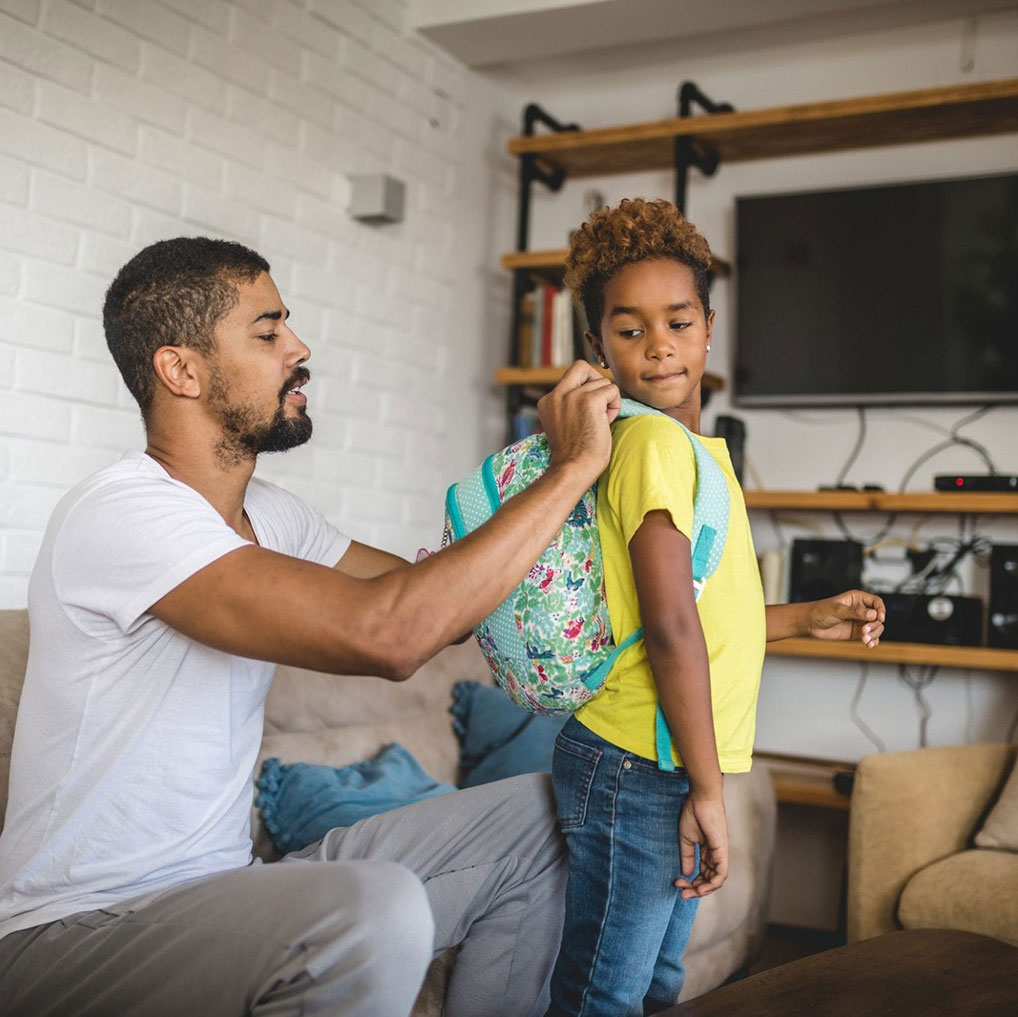When Your Child’s Grades Drop

September 01, 2020
Given the unprecedented year we’ve all experienced since March, it’s not uncommon for children’s grades to slip or for them to start becoming withdrawn or even argumentative. Children may be struggling with a healthy way to express their emotions due to everything that has been going on. Traditional means for expressing feelings, such as spending time with friends or participating in extracurricular activities are not readily available.
Additionally, the uncertainty of the future and the lack of structure is unsettling and can increase anxiety. A child’s anxiety is particularly increased when they are also concerned about their physical wellbeing or that of their friends and family. Concerns for safety and wonder about the uncertainty that remains becomes the focus of children’s energy, which serves as a distraction. Remember also that the symptoms of trauma in children and adolescents mimic the symptoms typically evident in Attention Deficit Hyperactivity Disorder.
With so much exposure to the news via social media, television and other mediums, children can become overwhelmed with the amount of information being shared about the pandemic and how it will impact them when they return to what they remember as a normal schedule. The traumatic impact of what they are exposed to is exacerbated by the absence of normalcy and possibly the lack of access to typical coping strategies.
Approach the Topic Gently
When it comes to discussing their changed behavior, approach them in a way that is loving and understanding—being careful not to demean or belittle them. Brett A. Biller, Psy.D., mental health director at Audrey Hepburn Children’s House, suggests starting the conversation with questions like:
- Did you forget to complete an assignment?
- Do you miss being around friends?
- Do you need extra help with your studies?
“These types of questions show concern rather than anger and give children an opportunity to express what is truly bothering them,” Dr. Biller says. “Additionally, more open-ended questions are best, such as “Tell me how you are feeling, and What do you think would be most helpful.” Open-ended questions allow your child to share something for which you previously did not consider. “If your child doesn’t feel comfortable sharing, seeking help from a professional might be the best next step.” It is important to normalize their feelings without minimizing them.
Let Children Know They Aren’t Alone
As essential workers continue to fight on the front lines of the coronavirus pandemic, make sure your child is aware of how this has impacted our global community physically, emotionally and mentally. “Life as we know it has drastically changed over the last few months, and we’ve all had to make adjustments—some bigger and more dramatic than others,” says Steven Miller, D.O., board-certified pediatrician. “Reiterate to your child that this experience is shared by many—and is a life lesson that is teaching us to pivot and embrace change, get comfortable with being a little uncomfortable and, most importantly, to look out for others as we continue to take care of ourselves.”
Further, remind them that, although things feel out of control at times, you as a parent are doing all that is possible to ensure their wellbeing, Dr. Biller says.
Give Them Creative Outlets
It’s also important to give children the space to express emotions in a creative way. If your child is used to a full school day, establish a routine that allows him or her to not only experience the structure of schoolwork, but also social experiences like lunchtime and physical education. While they may not be able to interact with friends and classmates, remind them that social distancing is still critical at this time in order to keep everyone healthy and safe, and is a way they can contribute to keeping themselves and others well.
“Encourage children to have virtual hangouts with their best friends and classmates on a regular basis,” Dr. Miller says. “While they may not be able to gather in person, that consistent communication can lift spirits and prevent the spread of the virus.”
Encourage children to do what they can to support others such making cards or signs for essential workers, initiating a food drive or fundraising for a charity that is important to them. If you child is able to collaborate their efforts with friends or siblings, that will also encourage necessary and productive interpersonal interactions. By doing for others, children will experience a sense of control and empowerment.
Next Steps & Resources:
To make an appointment with Dr. Biller or Dr. Miller or another doctor near you, call 800-822-8905.
The material provided through HealthU is intended to be used as general information only and should not replace the advice of your physician. Always consult your physician for individual care.
Find a doctor near me
5 Tips for Preventing Sports Injuries in Kids

Prevent Kids' Sports Injuries. Learn 5 expert tips from doctors at JFK University Medical Center and Joseph M. Sanzari Children’s Hospital. Protect your child. Call 800-822-8905.
Relieving Pain From Heavy Backpacks

A backpack that is too heavy for your child can cause back pain. Our pediatric orthopedic experts share how to prevent this issue and alleviate pain.
